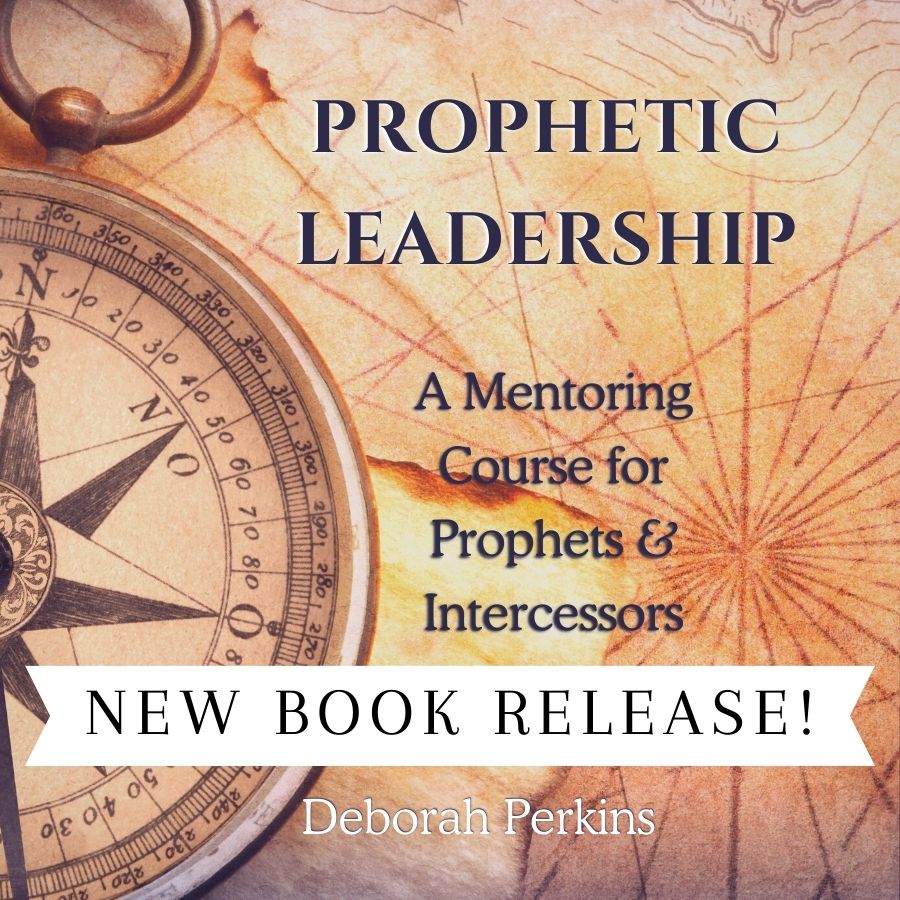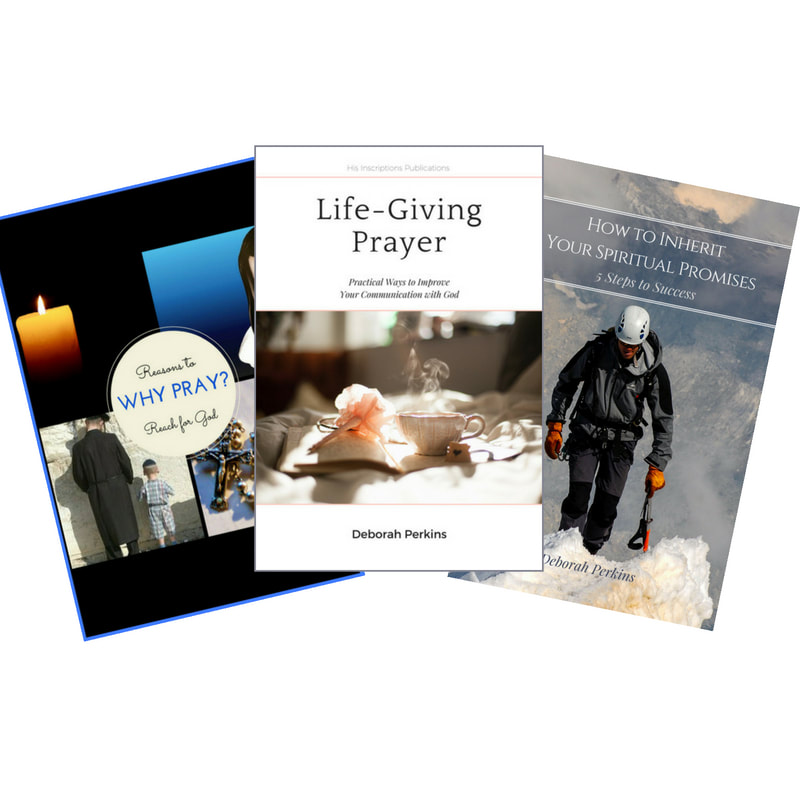|
Sometimes God plants difficult people directly in our paths in order to help us grow. Like thorns in our flesh, these people prick and poke at us until they rub us raw. We learn, painfully, that we just can’t live with them. We have to forgive them. If we don’t, we find that same kind of person further on down our paths, ready to prick us yet again.
For me, this person was someone I’ll call the “Nosy Neighbor.” In short, she helped me learn how to apply a 3-fold test of forgiveness. Forgiveness began when the Lord showed me a scripture:
All this is from God, who reconciled us to himself through Christ, and has given us the ministry of reconciliation; that is, in Christ God was reconciling the world to Himself, not counting their trespasses against them, and entrusting the message of reconciliation to us. So we are ambassadors for Christ, since God is making His appeal through us; we entreat you on behalf of Christ, be reconciled to God.
God has entrusted us with His message of reconciliation. Most believers are aware of this and are eager to share God’s gift of forgiveness with the world. Yet ironically, the only way we can preach this message is if we also become “forgivers” ourselves! Our message of reconciliation loses its power when we don’t walk our talk, and pre-believers are quick to spot hypocrisy.
Is it any wonder, then, that shortly after writing to the Corinthian believers about the ministry of reconciliation, Paul asks them to “open wide your hearts also?” Paul perceived that the Corinthians were holding back their affections for him. Perhaps he knew that their reservations would be problematic for them in ministry as well. As I read through Paul’s letter to the Corinthians, I noticed that Paul inadvertently described a three-fold test of forgiveness that believers could use to discern whether our forgiveness process is complete. To show you how this works in real life, let me describe the process, followed by my story. Paul writes: We have spoken frankly to you Corinthians; our heart is wide open to you. There is no restriction in our affections, but only in yours. A 3-Fold TestForgiveness is more than simply saying, “I forgive you,” and moving on. That kind of quick answer has rarely gone deep enough to heal the wounds of my heart. Neither is forgiveness the ability to “stuff it” or “forget” what happened. Rarely do people forget offenses (although God does), and it’s unrealistic to expect ourselves to completely obliterate our memories as “proof” that we have forgiven. Here’s what real forgiveness looks like, according to Paul: 1. We are able to speak the truth in love. 2. Our hearts are open wide; we’re ready to share, serve or give anything to the offender, without withholding in an act of self-protection. 3. There are no restrictions in our affections; i.e., our souls and emotions are no longer guarded or hesitant when dealing with the offender. #1: Speak the Truth in LoveNotice that Paul doesn’t mince words when speaking to the Corinthians. He lets them know that while his heart is wide open, theirs is not. Far from being angry or trying to offend them, Paul hopes to point out a valid truth: that the Corinthians have not received him as freely as they should have. He is showing them that the one they perceive to be an “imposter” is actually the real thing. And he’s concerned that they’ll miss out on all God has to offer them if they continue to doubt Paul’s integrity. True forgiveness is able to name and speak of an offense in a loving way, without punishing the offender for the wrong done. Its goals are reconciliation and growth. Too often we skip this step, believing that if we simply “overlook” every offense done to us, we’ll get through it just fine. There’s a place for covering the sins of another, but “covering” offenses refers to the mandate to protect, not slander, our brothers and sisters in the Lord. In most cases, we are to keep others’ sins to ourselves. However, that does not mean that we don’t deal directly with others about what offends us. Truth, spoken in love, sets both you and your offender free. It can be intimidating to confront – after all, what if he won’t listen? What if she writes us off as a friend? That’s a chance we must take, and the willingness to listen and change shows us a great deal about a person’s character. I’d prefer to be friends with someone who is mature enough to hear hard things, not just good things, when I’m talking with them. Our relationship will be a lot stronger for it. #2: A Wide-Open HeartWhat does an open heart look like? In its simplest form, it’s a generous heart. A giver holds nothing back. She lives the Acts 4 dream, sharing whatever she has with those in need. He walks one mile instead of two when asked, and serves even his enemies with kindness. How is this kind of giving possible? When we see the full extent of God’s protective love for us, we no longer need to hold onto things. We trust that God can supply all of our needs, physical or otherwise. We recognize that everything – even our hearts – belongs to Him, and we’re not afraid to let it go. In fact, we get excited about giving to our enemies, because we know there’s an even greater potential for blessing when that person falls in love with the Lord as a result! We need not fully trust the person we are giving to. It’s that we trust God to take care of everything. When we find it difficult to give freely to someone, it may be an indicator of unforgiveness in our own heart. #3: Affection without RestrictionLest we fall into the trap of giving out of a sense of duty or legalism, this last test is a true test of the condition of our souls. Our giving may be 100%, but are our hearts in it 100%? Hesitancy or guardedness in our emotions is a key indicator that forgiveness is not complete. We can usually tell the condition of our souls by the words we speak. The Story of the Nosy NeighborFor over 20 years, our family has had what we politely call a “difficult neighbor.” Elderly and retired, she complains regularly about minor “issues” she sees in her neighbors around her – including us. Worse, she doesn’t address these issues directly, but often calls the town hall to ask them to “investigate” her complaints. We have had more than one instance of a town administrator showing up apologetically at our door in response to her calls. Even the town doesn’t take her seriously. Things had gotten to the place where I was about ready to give this nosy neighbor something a little more serious to complain about! But God gently reminded me that if I love only those who love me, I haven’t really behaved like a Daughter of the Kingdom. So I made it my goal to forgive her. Based on Paul’s idea of direct confrontation, (#1 above: "Speak the Truth in Love"), I thought perhaps a letter to my neighbor might help. After all, if she knew who we really were instead of having to guess at our intentions all the time, she might see the light. Maybe she was just a control freak; a little information might help. Sounded good – until I started “drafting” the letter in my head. Unfortunately, at first it sounded something like this: Obviously, I didn’t send any letters! I hadn’t reached forgiveness yet. I had failed Test #1. I decided I would give up the letter-writing idea and simply take Nosy Neighbor a cake instead. After all, I thought, who can resist some homemade sweetness? The only problem was, I realized that if I showed up at Nosy Neighbor’s door with a cake, I’d have to talk to her when she opened the door. While I might be able to freely give of what I owned, I still hesitated to give of myself. I knew if I saw her face I’d probably have some choice words for her, cake or no cake. So while I felt free enough to get past test #2, I was still stuck on test #3. My affections were definitely restricted. Out of the heart the mouth speaks. I lacked the unhindered flow of love I needed from the Holy Spirit. It would take a lot more prayer on my behalf to reach not only my neighbor, but also a place of true forgiveness. In the end, my husband and I went to visit the neighbor at Christmas, taking a small gift and spending a short time chatting with them, which helped ease the tension. We discovered that this neighbor lives a difficult life, being very sick and unable to venture beyond her own home. God gave us a great deal more compassion for our neighbor, and also gave her a chance to see, up close, that we were not the "ogres" she imagined when unfamiliar noises or events took place! Love takes the initiative to reconcile. This was no exception, but it did take me time to prepare my heart to love. A SolutionIf you struggle to love someone - whether neighbor, family, co-worker, or friend, I encourage you to order one of the Steps of Forgiveness cards offered by this ministry. I have used this biblical process to work through forgiveness throughout my Christian walk, and I can testify that it works. A simple "I forgive you" is often not enough to resolve the anger we feel; Jesus taught that forgiveness must come from the heart to be authentic. The Steps of Forgiveness cards help get at the root of what's bothering you and have helped many individuals and churches find freedom in the most difficult relationships. I don’t believe it’s an accident that Paul listed these three indicators of a heart of forgiveness. Remember, he was addressing believers! It’s not always easy to forgive, especially when we are treated unfairly. Amazingly, God has still entrusted the message of reconciliation to people like us. He believes that we can forgive the nosy neighbors and difficult friends who torment us. He also says that when we do our part, He himself will make His appeal through us, so that they might come to know Him. God is reconciling the world to Himself. He’s not counting men’s trespasses against them, like we do. The question is: are you ready to forgive? Deborah Perkins is passionate about helping others connect with God. She writes about knowing God and hearing His voice at HisInscriptions.com. When she's not writing, you can find her outside enjoying her chickens - and her neighbors! Follow her on Twitter, Pinterest, orFacebook, or to reach her directly, click here. |
Free Link to the Subscriber Resource Library when you join His Inscriptions!
About
Deborah Perkins Categories
All
Archives
June 2024
AuthorA severe hearing loss from childhood caused Deborah Perkins to develop what she now calls her secret weapon: tuning in to God's voice. A Wellesley College graduate and an award-winning writer, Deborah is now a wife and mother of 3 boys. Deborah has devoted over 25 years to professional and lay Christian ministry in New England and beyond. Her passion is inspiring people to cultivate greater intimacy with God. |
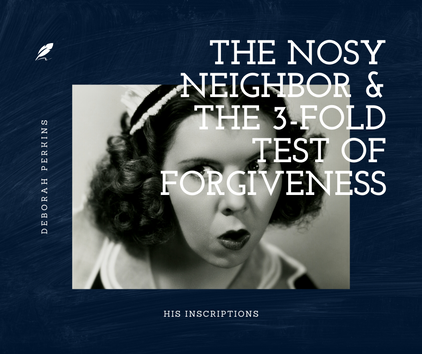
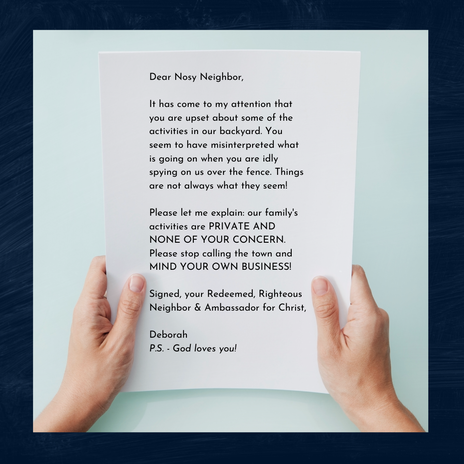
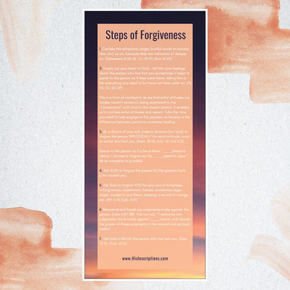

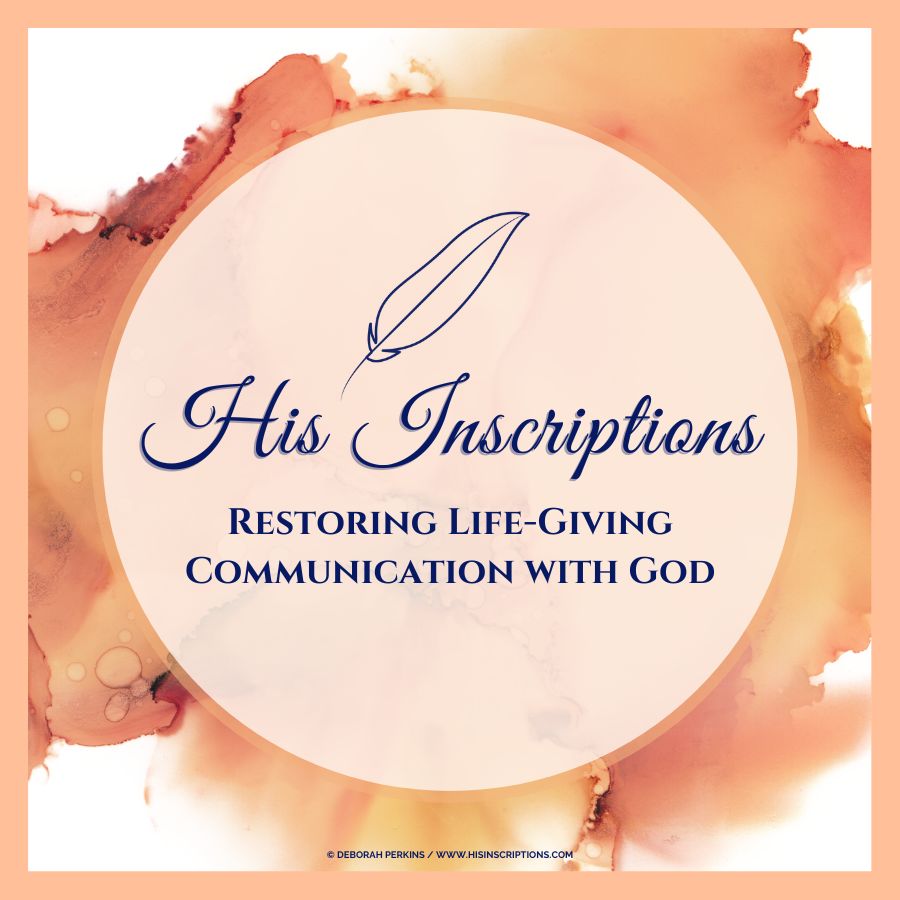
 RSS Feed
RSS Feed
